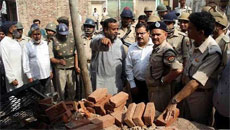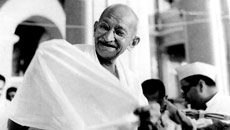The European Union (EU) is increasing by an additional eight million euros ($10.7 million) its efforts to contain the spread of the Ebola virus disease (EVD) outbreak in West Africa.
This is the fourth increase of EU assistance for this crisis. It brings the Commission's aid in 2014 to fight the Ebola epidemic, which the World Health Organisation (WHO) Friday declared a Public Health Emergency of International Concern (PHEIC), to 11.9 million euros.
In addition, a second European mobile laboratory will be deployed in the coming days, most likely to Sierra Leone, to provide essential support to diagnostics and testing.
"We are determined to fight the further spread of the deadly epidemic. Many lives depend on our immediate assistance," EU news website Europa Friday quoted Kristalina Georgieva, EU commissioner for international cooperation, humanitarian aid and crisis response, as saying.
"Our support will ensure urgently needed healthcare and the strengthening of preventive measures through our partner organisations which are helping around the clock to provide life-saving assistance to the victims," she added.
EU Commissioner for Development, Andris Piebalgs, stated: "Saving lives and providing further support to West Africa is now more than ever an urgent priority. We have therefore decided to mobilise today's additional assistance from the European Development Fund. New medical supplies and the mobile laboratory will help to meet the pressing needs in the region and improve capacities to detect the virus".
The additional EU funding will provide immediate healthcare to the affected communities and help contain the spread of the epidemic.
The aid will be channelled through the European Commission's humanitarian partners on the ground, including UN agencies and Non-Governmental Organisations.
Humanitarian experts from the commission have been deployed to the affected countries to undertake the assessment and coordinate with the health authorities and humanitarian partners on the ground.
The current Ebola outbreak started in Guinea in December 2013.
It has now manifested itself in Liberia, Nigeria, and Sierra Leone, besides Guinea.
As of Aug 4, the countries have reported 1,711 cases (1,070 confirmed, 436 probable, 205 suspect), including 932 deaths.
The virus is spread through direct contact with the bodily fluids of those infected.
"This is currently the largest EVD outbreak ever recorded," the WHO said in a statement Friday.





